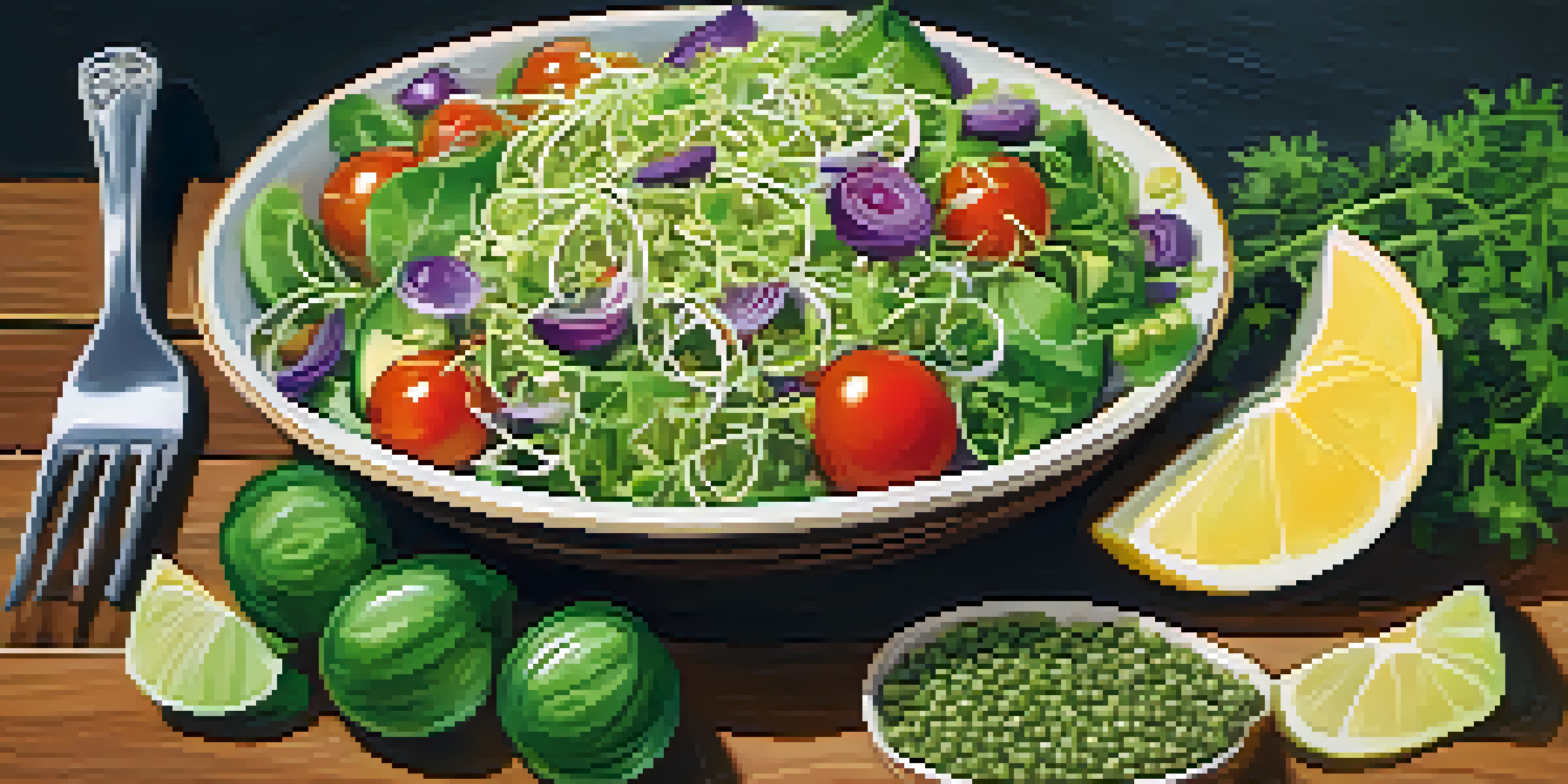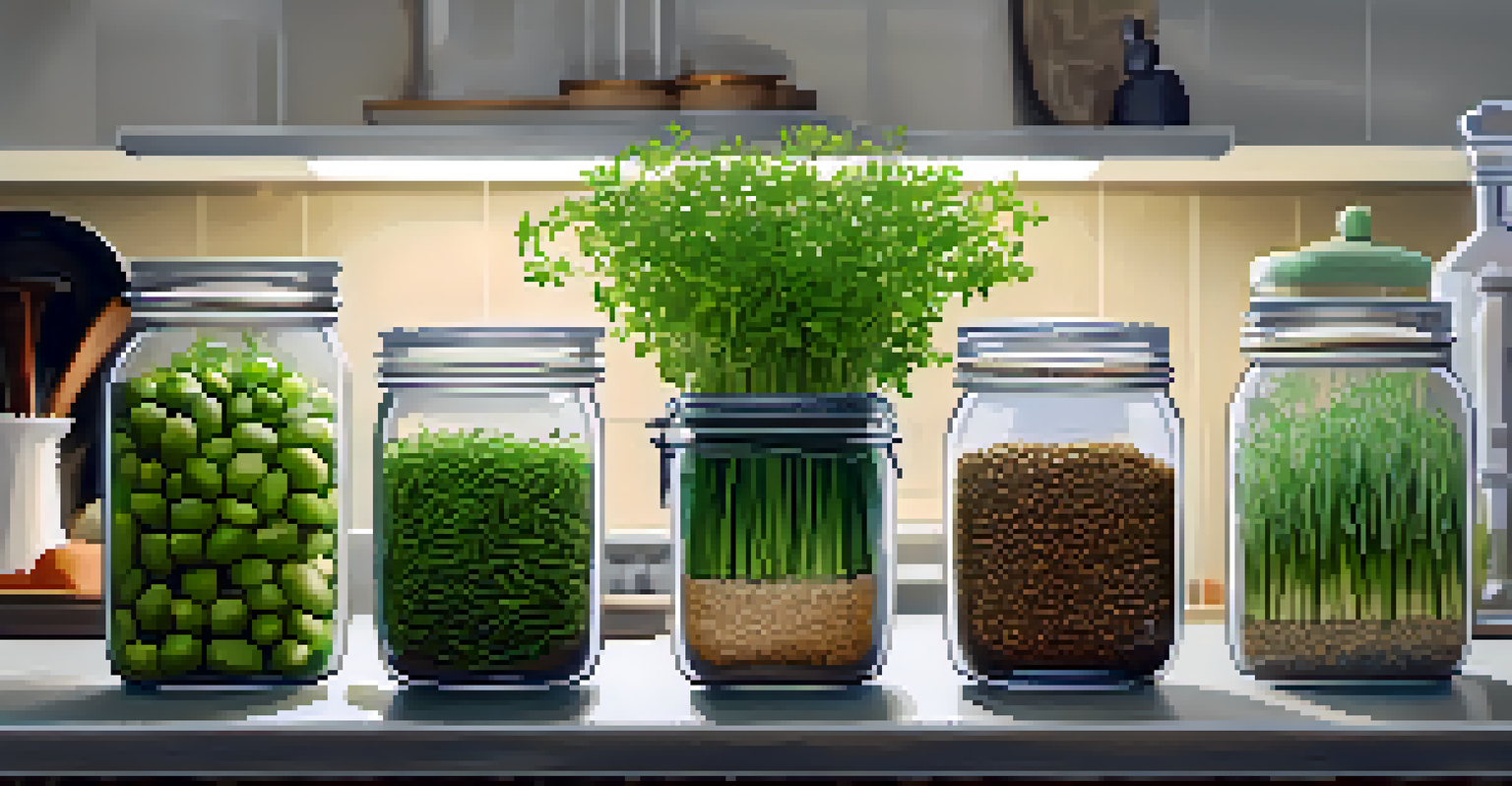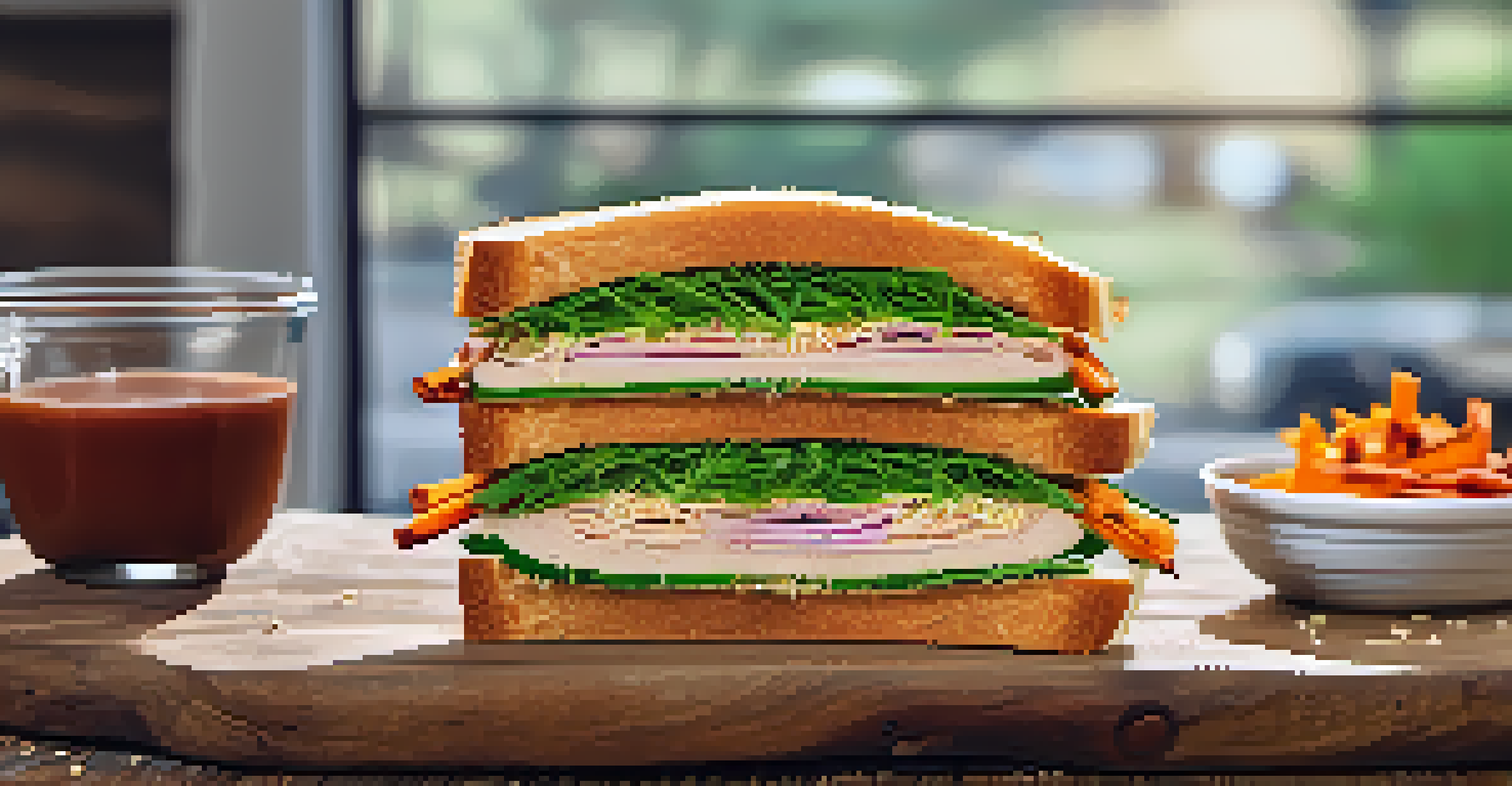Sprouts: A Simple Addition for Nutrient-Dense Raw Meals

What Are Sprouts and Why Use Them?
Sprouts are young plants that have just begun to grow, typically germinated from seeds, beans, or grains. They are packed with vitamins, minerals, and enzymes, making them a powerhouse of nutrition. Incorporating sprouts into your diet can enhance your meals with flavor and texture, while also boosting their health benefits.
Let food be thy medicine and medicine be thy food.
The beauty of sprouts lies in their versatility; they can be added to salads, sandwiches, smoothies, or even enjoyed on their own. They bring a crunch that many find delightful, similar to adding croutons to a salad but with far more nutritional value. Plus, they are incredibly easy to grow at home, which makes them a convenient addition to any diet.
As raw foods gain popularity, sprouts have emerged as a favorite among health enthusiasts. They are often considered 'living food' due to their enzyme content, which can aid digestion. This makes them an ideal choice for those looking to increase the nutrient density of their raw meals.
Nutritional Benefits of Sprouts
Sprouts are a treasure trove of nutrients, often containing higher levels of vitamins and minerals than their mature counterparts. For instance, alfalfa sprouts are rich in vitamins A, C, and K, as well as several B vitamins. This nutrient density makes them an ideal addition for anyone looking to enhance their overall health.

Moreover, sprouts are low in calories, making them a fantastic option for those watching their weight. With their high fiber content, they help keep you full longer and promote healthy digestion. It's like adding a nutrient-packed bonus to your meals without the extra calories.
Nutritional Powerhouse of Sprouts
Sprouts are packed with vitamins, minerals, and antioxidants, making them a valuable addition to a healthy diet.
Additionally, many sprouts contain antioxidants that help combat oxidative stress in the body. This can lead to improved immunity and reduced risk of chronic diseases. So, by including sprouts in your raw meals, you’re not just eating healthier; you’re investing in your long-term health.
Types of Sprouts to Consider
There are various types of sprouts available, each offering unique flavors and health benefits. Some popular options include alfalfa, mung bean, broccoli, and radish sprouts. Each type can bring a different taste profile to your dishes, making it easy to experiment with your meals.
You are what you eat, so don't be fast, cheap, easy, or fake.
For example, broccoli sprouts are known for their high concentration of sulforaphane, a compound that has been linked to cancer prevention. On the other hand, mung bean sprouts are crunchy and slightly sweet, making them perfect for stir-fry or salads. It’s like having a variety of ingredients at your disposal that not only taste good but also promote your health.
When choosing sprouts, consider your taste preferences and the nutritional benefits you seek. Trying different kinds can lead to delightful discoveries and help you find your favorites. Plus, sprouting at home allows you to explore even more varieties!
How to Grow Sprouts at Home
Growing sprouts at home is easier than you might think and requires minimal equipment. All you need are some seeds, water, and a jar with a breathable lid. Just soak your chosen seeds overnight, drain them, and rinse them a couple of times a day until they sprout. It’s almost like a science experiment that yields delicious results!
Within just a few days, you'll see your sprouts transforming and ready to eat. This method not only ensures freshness but also allows you to have a continuous supply of sprouts on hand. Imagine snipping off some fresh sprouts to toss into your salad or sandwich right when you need them.
Easy to Grow at Home
Growing sprouts at home is simple and rewarding, requiring just seeds, water, and a jar for fresh, nutritious produce.
Homegrown sprouts can be more nutritious than store-bought options since you control the growing conditions. Plus, there's a certain satisfaction in growing your own food, even if it's just a handful of sprouts. It’s a rewarding experience that connects you to your meals in a whole new way.
Creative Ways to Incorporate Sprouts
Incorporating sprouts into your meals can be as simple or creative as you like. Try adding them to salads for a crunchy texture or blending them into smoothies for a nutrient boost. Sprouts can elevate even the simplest dishes, transforming them into something special.
You can also use sprouts as a topping for sandwiches or wraps, adding both flavor and nutrition. For instance, a turkey sandwich with a handful of alfalfa sprouts can take your lunch from ordinary to extraordinary. It’s all about making small changes that can lead to big benefits!
Additionally, consider using sprouts in your cooking, but remember to add them towards the end to preserve their crunch and nutrients. They can be a fantastic garnish for soups or stir-fries. With a bit of creativity, sprouts can become a staple in your kitchen.
Potential Risks and Considerations
While sprouts are generally safe and healthy, there are some risks to be aware of. Raw sprouts can sometimes harbor bacteria like E. coli or Salmonella, especially if not grown or stored properly. It's crucial to practice good hygiene when handling and preparing them to minimize any health risks.
If you have a compromised immune system or certain health conditions, it might be best to avoid raw sprouts altogether. Cooking them can kill harmful bacteria, making them safer to eat. It’s essential to know your body and make choices that align with your health needs.
Versatile Meal Enhancers
Sprouts can be easily incorporated into various dishes, adding unique flavors and textures to salads, sandwiches, and smoothies.
As with any food, moderation is key. Enjoying a variety of foods, including sprouts, can help you maintain a balanced diet. Listen to your body and consult with a healthcare professional if you have concerns about adding new foods to your diet.
Final Thoughts on Adding Sprouts to Your Diet
Incorporating sprouts into your raw meals can be a simple yet effective way to boost your nutrition. Whether you grow them at home or buy them from the store, they offer a myriad of health benefits. Plus, their versatility means they can fit into just about any meal or snack.
As you explore different types of sprouts and ways to use them, you’ll likely discover new flavors and textures that enhance your meals. It’s a fun way to experiment in the kitchen while prioritizing your health. Every bite can be a step toward a more nutrient-dense diet.

So, why not give sprouts a try? They might just become a beloved addition to your culinary repertoire, making your raw meals not only more nutritious but also more exciting!